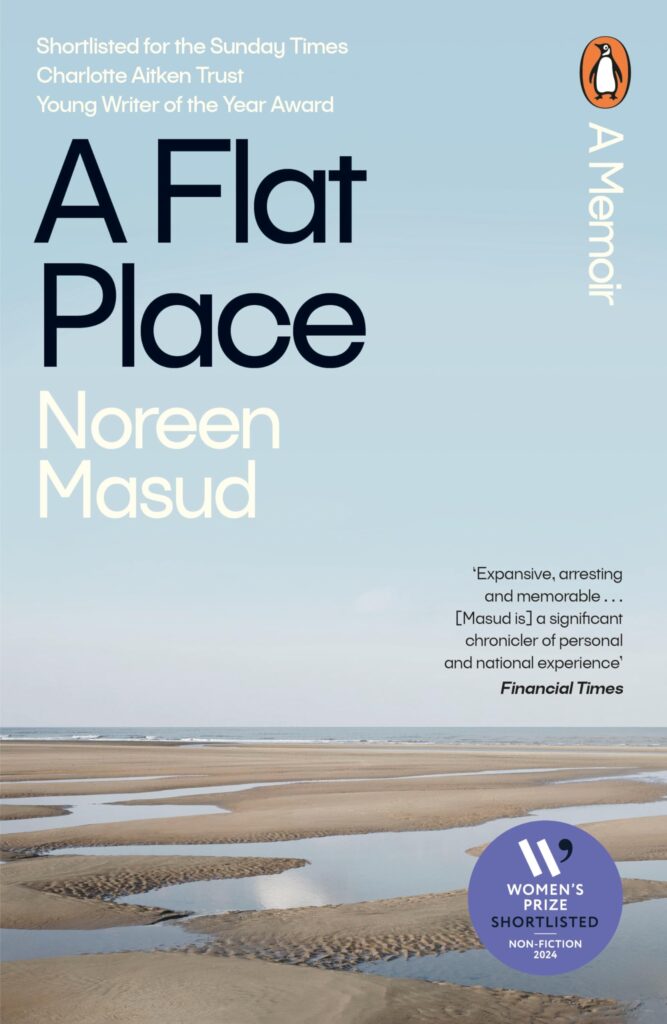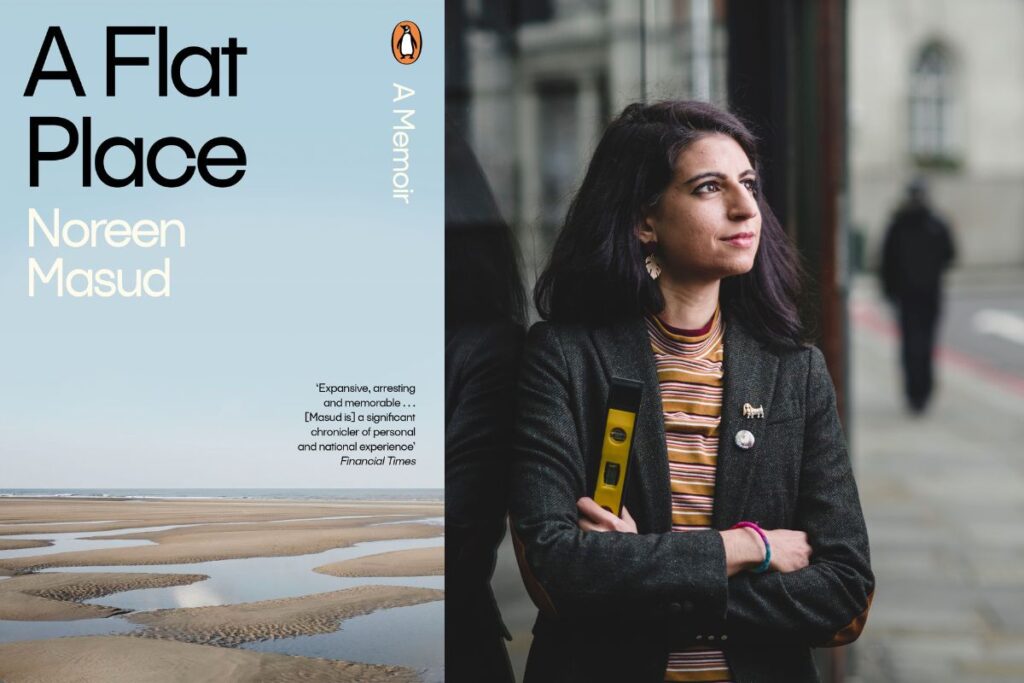We caught up with Noreen Masud, shortlisted for the 2024 Women’s Prize for Non-Fiction with A Flat Place, to hear her thoughts on the limitations genre can place on an author, and to gain her advice for what to do if your book idea doesn’t fit into any distinct categorisations.
People often ask me about how I categorise A Flat Place in terms of genre. I tend to answer: genre exists to help booksellers shelve books and to help readers find books. It’s nothing really to do with me as a writer. I don’t mind how people want to categorise A Flat Place: memoir, travelogue, nature writing, whatever. I have only felt worried about two classification choices: when I found it on the self-help shelf (I’m not sure the book is necessarily helpful) and when a friend photographed it on a Father’s Day gift display (I write explicitly about wanting my father to rot in the ground).
Genre is a funny thing. It asks you to obey rules – to write to what people know, think and expect – at the same time that it expects you to break new ground. Conscious of this double demand, new writers say to me, almost in the same breath: ‘I don’t know how to write something original!’ and ‘I’m sort of interested in writing about X, but I’m not sure it’s valid!’ This word ‘valid’ is fascinating. It’s everywhere online. We say that society should ‘validate’ certain choices or ideas. But in both life and in writing, you don’t need to wait for anyone to validate anything. If it interests you, just write it. The thing you think you’re not allowed to talk about – the thing no one else has ‘validated’ for you – is precisely the thing you should write. You don’t have to publish it. But write it and see what happens.
If you feel hamstrung by genre, by expectations, then read beyond the genre you think you’re writing in. The biggest influences on A Flat Place – the ones I’m conscious of, anyway – were fiction and poetry, not nature writing or memoir or travelogue (or, indeed, self-help). Make weird and eccentric alliances. Try to notice the rules hanging, almost unconsciously, over your head. Notice them so that you can try breaking them.
The empty page is a joy, not a burden. Spread yourself out on it, like a flat landscape. Cavort, unvalidated.









